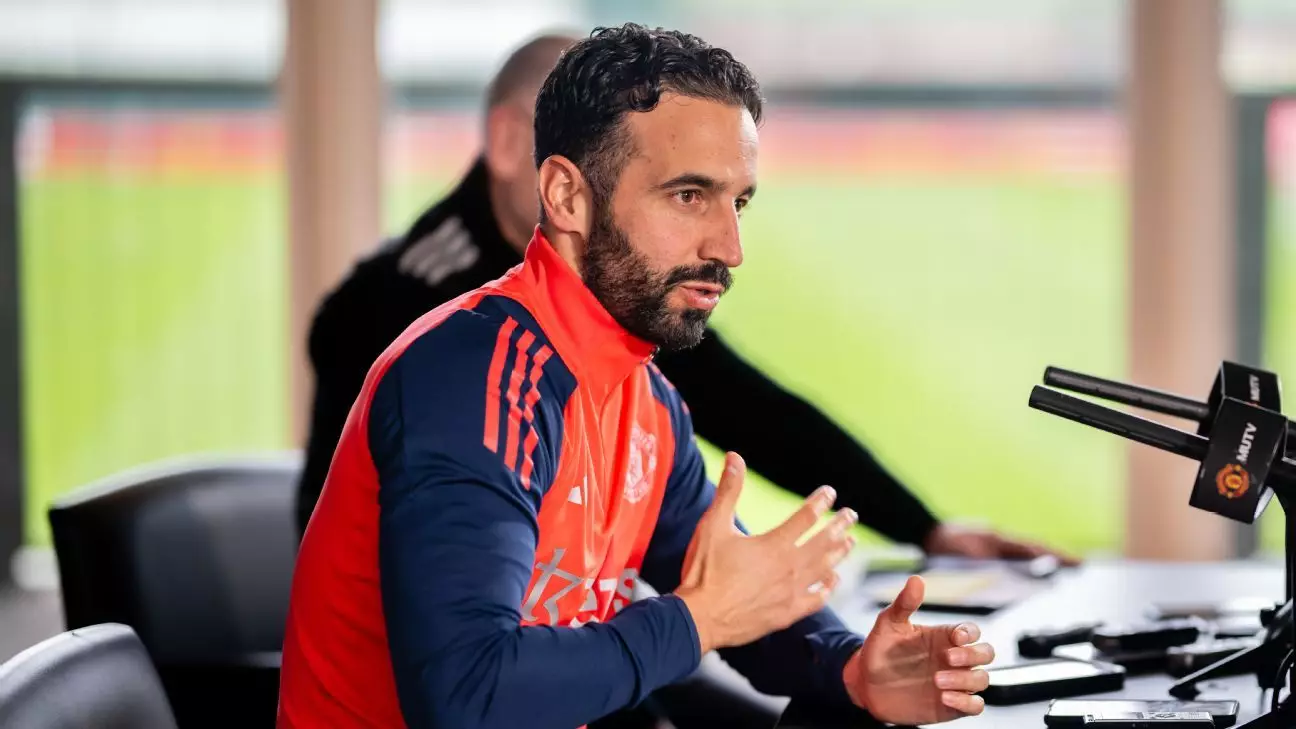Rúben Amorim’s recent appointment as head coach of Manchester United marks a significant shift in the club’s operational dynamics, particularly in relation to player transfers. Traditionally, the role of a manager encompassed both coaching responsibilities and the critical task of player recruitment. However, Amorim’s title as head coach suggests a departure from this norm, potentially impacting how decisions are made within the footballing hierarchy at Old Trafford.
Amorim arrives at Manchester United after a successful tenure with Sporting CP, known for his tactical acumen and ability to nurture young talent. His incorporation into United’s revamped structure, alongside sporting director Dan Ashworth and technical director Jason Wilcox, indicates a strategic move toward a more collaborative decision-making approach. This structural change aims to enhance the recruitment process, leveraging diverse skill sets to identify players who fit the club’s vision.
While Amorim has publicly stated he expects to have a decisive role in shaping the squad, sources indicate that his influence on transfer decisions may not mirror that of his predecessor, Erik ten Hag. Instead, it appears that Ashworth and Wilcox will wield considerable authority in recruitment, prompting questions about the distribution of power within the club. This raises pertinent concerns about the effectiveness of collaboration and the potential for discord if Amorim’s vision diverges from the directives of the sporting and technical departments.
During his first press conference, Amorim reiterated the importance of having the final word in player signings and departures. He emphatically stated, “I know how to play, so I think it’s all together but the final word should be the manager.” This statement reflects his commitment to ensuring that his strategic vision aligns with the players brought into the squad. However, the challenge lies in implementing this vision within a framework that ostensibly limits his influence.
A critical area of focus for Amorim will be revitalizing player morale, particularly as the team currently languishes in a disappointing 13th position in the Premier League. He acknowledges the psychological toll that a string of poor performances can impose on players, saying, “When you don’t win games, you start to be suspicious of the way of playing.” Such insights demonstrate his understanding of the mental aspects of football, recognizing that fostering confidence is pivotal for returning the team to a competitive footing.
Amorim’s approach suggests a blend of empathy and pragmatism. He seems aware that rebuilding belief within a squad requires time and patience. Commenting on the players’ readiness to meet Premier League demands, he conveyed optimism about their capabilities, noting instances from previous seasons where underperformance was often followed by a resurgence in form during matches. This duality of understanding—acknowledging present struggles while highlighting past resilience—will be crucial in his tenure.
The intersection of Amorim’s authority and the strategic recruitment process poses an intriguing dilemma. While the collaborative model could potentially yield a more analytical and data-driven approach to player acquisition, it risks diluting the head coach’s ability to create a cohesive team reflective of his vision. Amorim’s insistence on having a “strong position” in recruitment underscores a fundamental aspect of leadership in football: accountability.
In a high-stakes environment like that of Manchester United, where results are closely scrutinized, the balance of power will significantly impact not only player performance but also the overall trajectory of the club. As Amorim navigates these complexities, he must advocate for his philosophy while also adapting to the realities of a shared decision-making process.
The road ahead for Rúben Amorim at Manchester United is filled with both promise and challenges. His determination to regain player confidence while asserting his influence in recruitment may very well define his legacy at the club. As he embarks on this new chapter, the focus will undoubtedly be on how effectively he can forge a unified vision that aligns the ambitions of the coaching staff with those in the recruitment hierarchy—ultimately guiding Manchester United back to glory.

